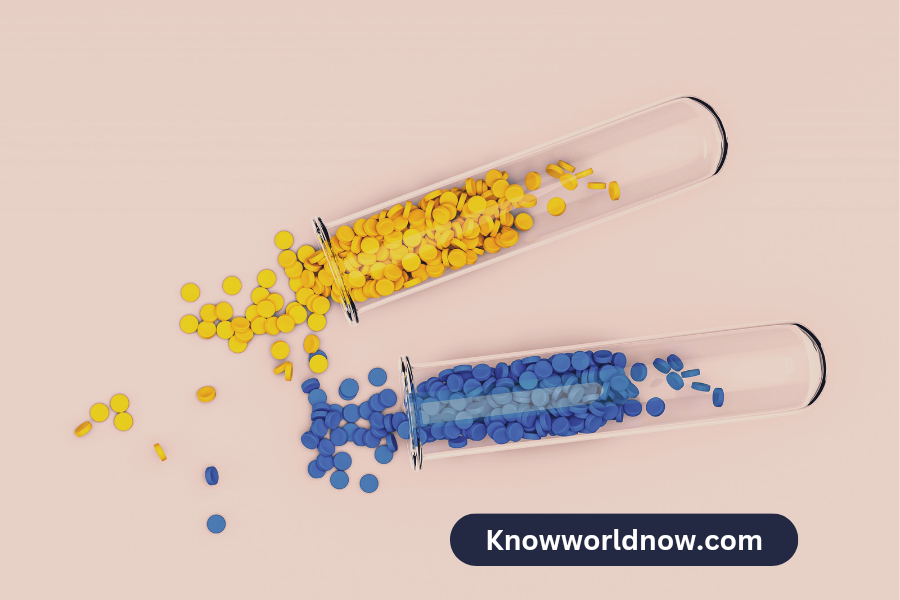The manufacturing sector continues to pay close attention to bio-based polymers as a sustainable replacement for conventional plastics made from petroleum.
Companies are looking into ways to lower their carbon footprint and adopt eco-friendly practices as concern over the environment grows. One such area is the widely used manufacturing process of injection molding, where bio-based polymers are gaining popularity.
Compared to conventional plastics, these renewable and biodegradable materials have a number of benefits, including lower greenhouse gas emissions, less waste, and less reliance on fossil fuels.
This article aims to examine the properties, uses, and advantages of bio-based polymers used in injection molding. We can learn more about how sustainable manufacturing practices can create a more environmentally friendly future by studying this subject.
Overview: Bio-Based Polymers In Injection Molding
Biodegradable and non-biodegradable are the two subcategories of bio-based polymers. Polylactic acid (PLA), polyhydroxyalkanoates (PHA), and starch-based injection molding plastics are examples of biodegradable bioplastics that are made to break down in the environment and lessen waste and pollution.
On the other hand, non-biodegradable bioplastics, like bio-based polyethylene (PE), bio-based polypropylene (PP), and bio-based polycarbonate (PC), offer properties comparable to those of conventional plastics while having a lower environmental impact because they are made from renewable resources.
The ability of bio-based polymers to reduce carbon footprint is one of their main benefits when used in injection molding. In comparison to conventional petroleum-based plastics, the production of bio-based polymers results in fewer greenhouse gas emissions. Furthermore, a lot of bio-based polymers are recyclable, enabling a more circular method of plastic production.
The adaptability of bio-based polymers’ applications is a significant benefit in injection molding. The characteristics of bio-based polymers make them appropriate for a variety of industries, including the automotive, electronics, and packaging sectors. These materials are perfect for parts with complex geometries because they can be molded into intricate shapes and sizes.
In addition, bio-based polymers outperform conventional plastics in terms of performance. For example, bio-based PE and PP have increased tensile strength, improved heat resistance, and enhanced impact resistance. PLA, on the other hand, has a lower melting point and is therefore simpler to mold into various sizes and shapes. Bio-based polymers are an effective replacement for conventional plastics in a variety of applications due to their improved performance characteristics.
Importance of Bio-Based Polymers In Injection Molding
Given their significant contributions to sustainability, environmental preservation, and the move towards a greener future, injection molding service providers would recommend bio-based polymers for injection molding. The following are some key points in favor of bio-based polymers:
Impact on the Environment
Bio-based polymers, as opposed to conventional petroleum-based plastics, which depend on limited fossil fuel resources, are made from renewable sources like plants and agricultural waste.
Manufacturers can significantly lower carbon emissions and their reliance on non-renewable resources by using bio-based polymers in the process injection molding plastics. This shift to renewable materials reduces the manufacturing sector’s environmental impact and aids in the fight against global warming.
Waste minimization
Biodegradability is a benefit of bio-based polymers. Biodegradable bio-based polymers, like PLA and PHA, can decompose naturally over time, which lessens waste accumulation and the load on landfills.
This quality is especially useful in contexts where single-use items and packaging are frequently made of disposable materials. Injection molding manufacturers can support a more circular and sustainable economy by using biodegradable bio-based polymers.
Circular economy
Circular economy models can include bio-based polymers. They can be reused in the manufacturing process and recycled, which lowers the need for virgin materials.
In some circumstances, bio-based polymers can even be composted to produce useful organic matter that can be added to soil to improve its nutrient content. Injection molding is essential for closing the loop and reducing waste generation because it encourages the recycling and composting of bio-based polymers.
Consumer and Market Demand Preferences
As consumer awareness of the environment increases, they are looking for more sustainable goods. Manufacturers can satisfy this demand and ensure that their products reflect consumer preferences by incorporating bio-based polymers into their injection molding processes.
Businesses that put an emphasis on sustainable practices and provide eco-friendly choices are likely to draw more customers and gain a competitive advantage.
Regulatory Compliance
To promote the use of sustainable materials and lessen plastic pollution, governments all over the world are putting regulations and standards into place.
Manufacturers can stay ahead of changing regulations and ensure compliance with environmental mandates by implementing bio-based polymers in injection molding.
Adopting bio-based polymers demonstrates a company’s commitment to sustainable development and positions it as a responsible corporate citizen.
Conclusion
Injection molding offers a significant opportunity for the manufacturing sector to make the transition to a more environmentally friendly future.
These environmentally friendly substitutes for conventional petroleum-based plastics have a number of benefits, such as lower greenhouse gas emissions, less waste generation, and less reliance on limited fossil fuel supplies.
Manufacturers can support environmental preservation, advance a circular economy, satisfy consumer demand for sustainable products, and abide by changing regulations by incorporating bio-based polymers into the injection molding process.
The use of bio-based polymers in injection molding is a proactive move in the direction of a more environmentally responsible and sustainable manufacturing sector, paving the way for a greener future.



![10 Best Bags for Nurses | Personal Recommendation [2023] 4 Best Bags For Nurses Reviews in 2021](https://knowworldnow.com/wp-content/uploads/2022/12/Best-Bags-For-Nurses-Reviews-in-2021.webp)



![F95Zone Games - The Ultimate Guide for 2021 [F95Z Guide] 8 F95Zone Games](https://knowworldnow.com/wp-content/uploads/2021/07/ArTtW5LrK3b-z-0-y-637f48d86203817a9042a857.webp)